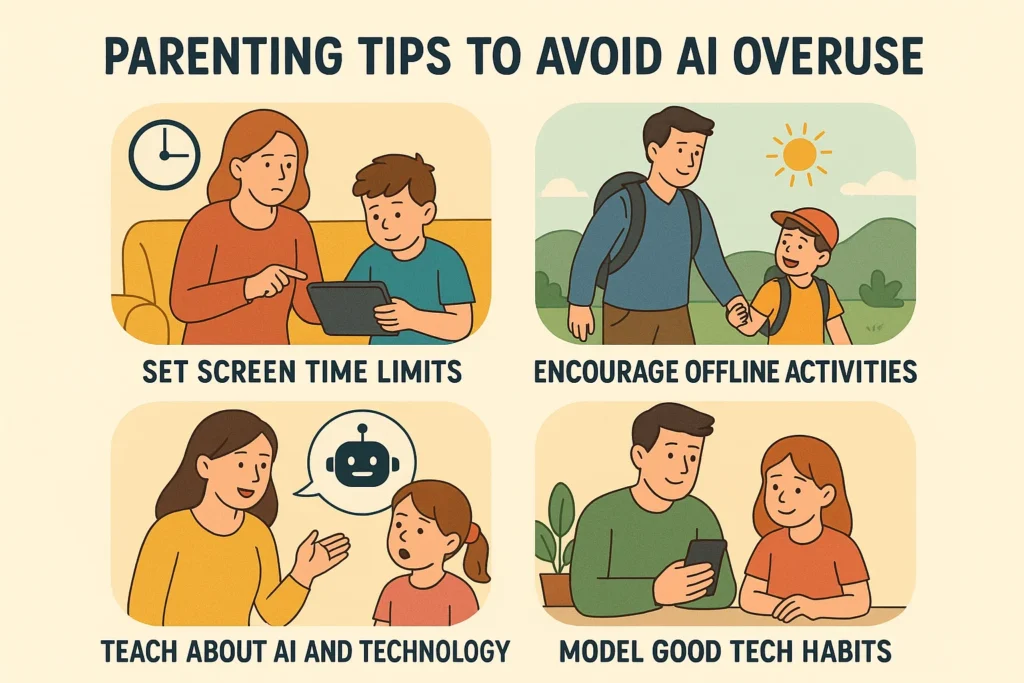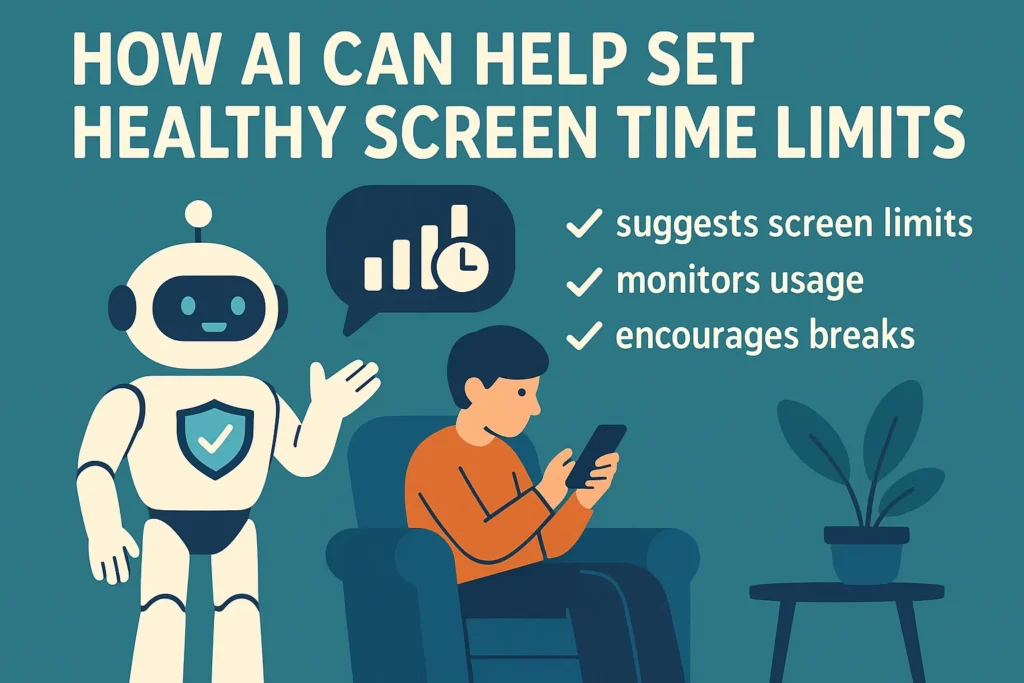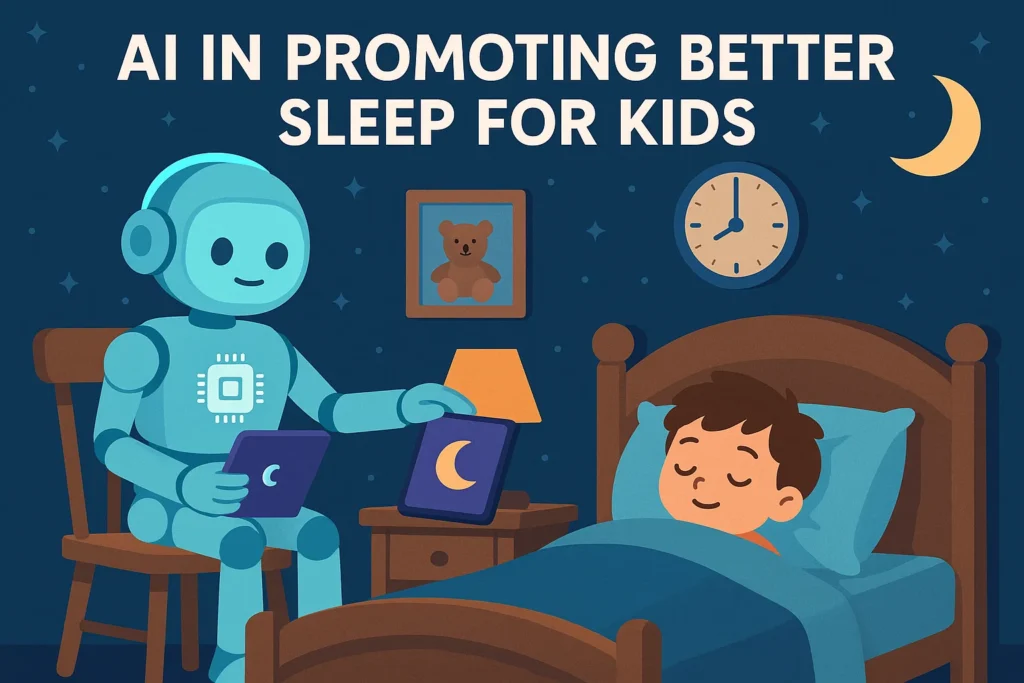📌 Introduction
Artificial Intelligence is becoming part of everyday life—from smart toys to virtual tutors. While AI tools bring convenience, parents often worry about overuse among children. At AiBlogQuest.com, we highlight the best parenting tips to avoid AI overuse, ensuring kids enjoy technology without losing touch with real-world experiences.
✅ 7 Parenting Tips to Avoid AI Overuse
-
Set Clear Screen Time Limits
Use parental controls and create daily or weekly time caps for AI-powered apps and devices. -
Encourage Offline Activities
Balance AI use with hobbies like reading, drawing, sports, or outdoor play. -
Co-Use AI Tools
Sit with your child when they use AI apps, turning tech into a shared learning experience rather than passive consumption. -
Teach Digital Literacy
Explain how AI works and its limitations, so children understand it’s a tool, not a replacement for creativity or critical thinking. -
Designate Tech-Free Zones
Keep bedrooms and dinner tables free from AI gadgets to encourage healthy family interactions. -
Lead by Example
Model balanced technology use by limiting your own reliance on AI in front of your kids. -
Encourage Mindful Use
Teach children to reflect on whether AI tools are helping or distracting them, promoting responsible tech habits.
🌱 Why Balance Matters
Children need both digital skills and real-life connections. By following these parenting tips to avoid AI overuse, parents can nurture well-rounded kids who use technology responsibly.
🚀 The Future of Parenting in the AI Age
AI will continue to grow in homes, schools, and daily routines. Parents who set balanced rules now will raise kids who use AI wisely, without dependency.
🔗 Useful Links – AiBlogQuest.com
-
AI Tools to Balance Kids’ Online and Offline Time
-
AI for Monitoring Emotional Wellbeing in Kids
❓ FAQ
Q1: How much AI use is too much for kids?
It depends on age, but more than 2 hours of non-educational screen time daily may be considered excessive.
Q2: Can AI tools replace human learning?
No, AI should be a supplement, not a substitute, for real-world education and social interaction.
Q3: Are AI-based parental controls helpful?
Yes, they help set time limits and monitor activity, but parents should combine them with guidance and conversations.
Q4: What age should kids start using AI tools?
Simple AI-based apps can be introduced from age 6+, but usage should always be supervised.



